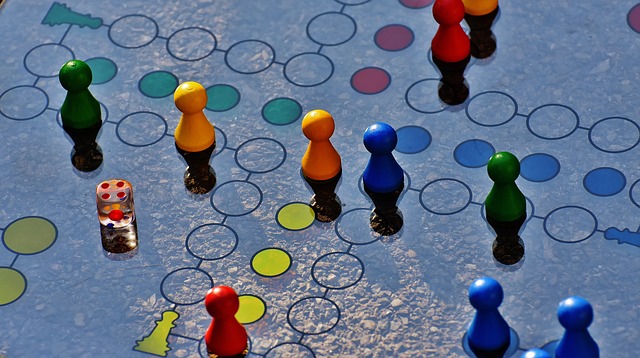Ludological Mission

The ludology research unit draws on game-based methods to explore both theoretical realms as well as practical topic areas.
Responsibilities and Goals
As children, we humans experience our surroundings at play, we play around with our phantasy, engage in role playing games, design building buildings and technology in our minds and construct them with our hands. We invent regulations, establish new rules or urge to change existing ones.
Just like nature, love, work, power and death, play counts among the basic phenomena of humankind. Hence, numerous scientific disciplines concern themselves with the various constituent aspects of play and games. The field of ludology aims to be a distinct scientific discipline that conducts interdisciplinary research and has and exerts a transdisciplinary influence.
Being a resident at “design akademie berlin – SRH Hochschule für Kommunikation und Design”, the Institute for Ludology operates cooperatively with its network of experts that spans across various universities.
Ensuing from game-based research questions, observations, analyses and assessments the field of ludology explores the greatly complex phenomenon of play and games from different disciplinary perspectives and thereby strives to bring structure into the theory of play behavior and to develop models for observation, analysis and decision making.
Aspiration and Philosophy
Philosophy and Pedagogy, Sociology, Theology, Anthropology, Behavioral Science, Microbiology, Mathematics and Economics all have described games and analyzed them in diverse ways.
Play and Games have ALWAYS been topics of interdisciplinary nature. Reasons enough for us to transform this cross-cutting issue into a distinct scientific discipline. The Institute for Ludology strives to enrich itself with the knowledge of all those other disciplines while at the same time feeding back insights into them. Therefore, we pursue a maximally trans- and interdisciplinary approach. The Institute’s core assumption is that play behavior constitutes the essential foundation for the development of human abilities as well as the motor for innovation, change and cultural advances. However, principles, motives, functions and characteristics of games have so far been reserved to “originary” games. The autonomy of Ludology results directly from its perspective and methods.
We want to learn from games and show that the functionalities of games can be transferred onto other areas. These include big companies, institutions, and organizations – in short: wherever people act, plan and make decisions, this can work better or worse. Game mechanics can help people act more sensibly, effectively and not least with more fun. Fun, games and pleasure are trivialized and forgotten all too often.
Hereof, Freud already noted:
“The opposite of play is not what is serious but what is real.”
The Institute for Ludology explores how this fun, this passion, this YOLO evolves. We bring games back into other realms of experience.
Maybe even into yours!
More:

